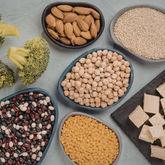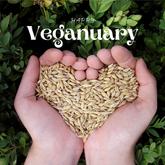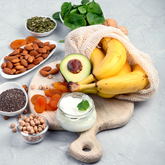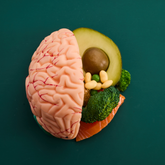Nutritional Considerations for Vegan Breastfeeding
Experts say breastfeeding is healthy for both the mother and her infant. Researchers have found that breast milk from mothers who follow a vegan diet contains a sufficient amount of vitamin B2 and carnitine, which are important nutrients for infant development. Contrary to previous studies, this research suggests that vegan breast milk does not lack essential nutrients.
However, it is still crucial for vegan breastfeeding mothers to ensure they consume enough calories and nutrients for their own health and the health of their infants (source).

Comparison of Non-Dairy Milk Alternatives
There are various plant-based milk alternatives available for breastfeeding mothers who follow a vegan diet. Let's review some of the popular options:
Almond Milk: Almond milk is known for its mild, nutty flavor. While it is not a significant source of protein or fat, it is rich in vitamin E. It is important to note that almond milk may not provide the same level of nutrients as breast milk or formula and should not be used as a replacement for infants.
- Soy Milk: Soy milk has been a popular choice among individuals following a plant-based diet. It is a close substitute for low-fat cow's milk and contains protein and fat.
However, some children may have soy allergies, so it is essential to be cautious when introducing soy milk to infants.
- Pea Milk: Pea milk is a newer alternative that has gained popularity for its nutritional content. It is rich in protein, fat, and calcium. Pea milk is suitable for children who attend school or have nut allergies, as it is nut-free.
However, it can be more expensive compared to other plant-based milk alternatives.
When choosing a plant-based milk alternative, it is important to consider the nutritional content, taste, cost, and availability. Each type of milk has its own unique benefits and factors to consider.

Health and Safety of Non-Dairy Milks for Children
The labeling and nutritional value of non-dairy milks have been a topic of discussion. The Food and Drug Administration (FDA) issued draft guidance on the labeling of plant-based milks. While these milks do not come from cows, they are still allowed to be called milk, though updated labeling is suggested to compare the nutritional value to regular milk. Soy beverages that contain calcium, vitamin A, and vitamin D are the only plant-based milks that can be included in the dairy group as defined by the Dietary Guidelines for Americans.
It is important to note that non-dairy milks should not be used as infant formula replacements. Infant formulas are specifically designed to meet the unique needs of babies and must meet federal nutrient standards. Non-dairy milks are not nutritionally similar to cow's milk and should only be introduced as part of a child's diet after age 1.
There are misconceptions surrounding non-dairy milks, and it is crucial to be informed. Some non-dairy milks may be low in protein or fortified with excessive sugar, so it is essential to check the nutritional content and ingredient lists. Additionally, non-dairy milks have unique flavors, and experimentation may be necessary to find the best option for your child.

Personal Experiences with Plant-Based Milk Alternatives
Every family's journey with plant-based milk alternatives is unique. When transitioning to plant-based milk for infants, it is recommended to do so gradually, mixing the alternative milk with breast milk to help the child adjust to the taste. Different plant-based milks, such as pea milk, soy milk, and almond milk, provide varying levels of protein, fat, and other nutrients. It's important to choose milk alternatives that meet your child's nutritional needs.
Supplements, such as vitamin D drops and B12 sprays, may be necessary to ensure adequate nutrient intake. These supplements can provide additional vitamins that may be lacking in plant-based diets.
In conclusion, vegan mothers who choose to breastfeed have options when it comes to plant-based milk alternatives for themselves and their infants. It is important to consider the nutritional content, taste, and suitability of these alternatives. Consulting with a healthcare professional can provide personalized guidance to ensure optimal nutrition for both mother and baby.
Additionally, for those interested in exploring homemade plant milk options, trying Milky Plant can be an excellent suggestion. With Milky Plant, you can easily make plant milk at home in just three minutes, without any mess, and have complete control over the ingredients. This allows you to tailor the milk to your specific preferences and dietary needs, ensuring a nutritious and delicious alternative for you and your little one.















